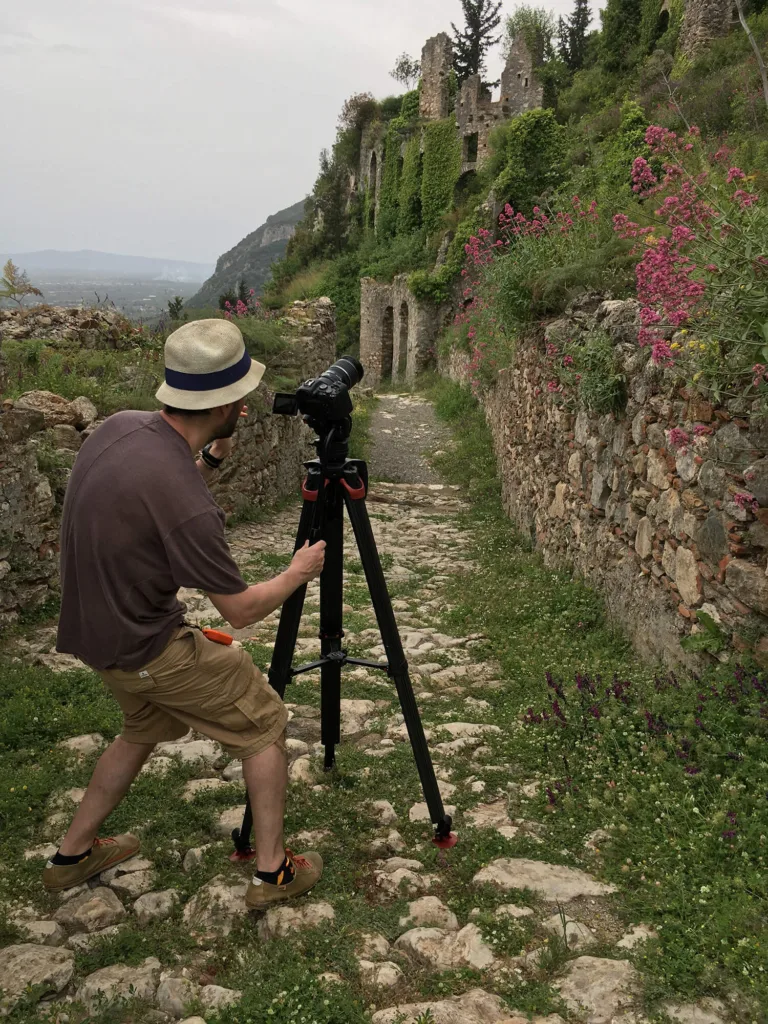If you’re considering creating a video for your business or personal project, you may be questioning whether to employ a video production specialist or a videographer. Understanding the differences is crucial to making the best choice. Each has their own abilities and expertise, so selecting the appropriate professional is essential for the final outcome. Let’s examine the differences between them and identify the ideal video expert for your upcoming project.
Thank you for reading this post, don't forget to subscribe!
Understanding Video Production
Video production companies undertake a multitude of tasks, such as scriptwriting, storyboarding, location scouting, and editing. They are capable of managing a diverse array of production duties.
A videographer typically works solo, providing a more limited selection of services which they charge for by the day or hour. The key distinction lies in the breadth of production services they are able to supply.
For high-quality, professional ventures requiring numerous production tasks, it is advisable to employ a video production company. They also suit projects that demand more resources and expertise than a videographer can furnish.
When engaging a video professional, it is crucial to enquire about their past projects, the services they offer, as well as the price and timeline for their work.

Learning About Videography
Who is a Videographer?
- A videographer is proficient in handling cameras, arranging lighting, recording sound, and editing video clips. They usually hold a degree or qualification in film and video production, as well as experience in cinematography and visual storytelling. 2. The videographer’s primary duties within a video project include capturing high-quality footage, adjusting camera and lighting gear, ensuring clear sound recording, and cutting the footage to narrate a tale. They also realise the client’s creative vision through visual narrative.
- When choosing whether to hire a videographer or a video producer, contemplate the size and demands of the project. For a straightforward video recording with basic editing, a videographer might be more cost-effective. Yet for larger projects with intricate requirements, the specialised skills of a video production company could be advantageous.
Tools and Technology for Videographers
Videographers utilise high-quality cameras, tripods, stabilisers, and lighting equipment for professional video content. They also employ software for video editing, colour grading, and sound mixing.
Videographers keep abreast of the latest developments by attending workshops, seminars, and online courses. It is also crucial to research and invest in new equipment, software, and techniques.
In selecting tools for a project, videographers take into account the budget, aesthetic, and technical demands. Assessing the needs of each project and choosing tools that match the project’s objectives and the audience’s expectations is essential.
Recognising the Art of Shooting Videos
The art of filming videos encompasses a range of activities, such as scriptwriting, storyboarding, operating the camera, lighting, sound recording, editing, visual effects, adding subtitles, and creating motion graphics.
A videographer can tell captivating stories by excelling in framing, composition, camera motion, lighting, and sound.
Essential techniques and abilities for a skilled videographer include knowledge of camera angles, utilising various lenses, effectively capturing emotion and action, and proficiency in editing software.

Comparing the Two: Video Production versus Videography
Key Differences in Skills and Responsibilities
The skills required for a video producer include scriptwriting, storyboarding, camera operation, lighting, sound, editing, VFX, subtitling, and motion graphics. In contrast, a videographer should be proficient in camera operation, lighting, and sound.
A video producer is in charge of overseeing the pre-production, production, and post-production stages. This encompasses scriptwriting, storyboarding, location scouting, camera operation, lighting, sound, editing, VFX, and distribution. On the other hand, a videographer’s duties are primarily focused on camera operation, lighting, sound, and possibly editing.
Employing a video producer is more appropriate for complex projects like adverts, corporate films, or event videos that demand thorough pre-production and post-production work. These projects require sophisticated storytelling and intricate editing. Conversely, employing a videographer is more apt for smaller projects such as interviews, social media content, or live events that need a more straightforward method of video production.

Choosing Between a Producer and a Videographer
A video producer can do many things. They can write scripts, create storyboards, find locations, operate cameras, manage lighting, produce sound, edit footage, add visual effects, create subtitles, and produce motion graphics.
Conversely, a videographer usually works solo and is suited to smaller projects with fewer responsibilities.
For a complex and high-quality video, such as a corporate video, advertisement, or film, it’s better to employ a video producer.
However, for a smaller endeavour like an interview, event filming, property showcase, or social media content, a videographer is a wise choice. They are also ideal for customers requiring quick and cost-effective videos.
When to Hire a Video Producer
Employing a video producer might be essential if a firm desires improved quality and a broader assortment of video materials. Circumstances that might gain from a video producer’s skill set encompass ventures needing a range of production duties such as lighting, sound, scripting, and distribution.
A primary factor is how often extra production tasks are necessary and the kind of services each supplier presents. Video production companies take on extra tasks more regularly, improving the video’s quality though at an increased expense. Conversely, a videographer typically works on a daily or hourly charge and might deal with fewer tasks as a sole operator.
Situations Ideal for a Videographer
- Occasions such as weddings, corporate events, music concerts, sports matches, and virtual real estate tours can benefit from a videographer’s expertise. These events require live and engaging video to create a visual record and tell the event’s story.
- A videographer can enhance the narrative and visual appeal of a project by paying close attention to detail, knowing how to weave a story through visuals, and capturing key moments. They must also be adept at using a range of cameras, including drones and specialist equipment, to bring creativity and dynamism to the video content.
- A videographer needs to have excellent communication and people skills in order to work with clients and capture their vision. They should also be skilled in video editing and post-production to ensure the end product fulfils the client’s requirements and conveys the desired narrative effectively. Being flexible and adaptable is essential, as a videographer needs to be able to cope with various settings, lighting conditions, and unforeseen obstacles while filming.

Finding the Right Video Specialist for Your Needs
Tips for Hiring a Video Professional
Before taking on a video expert, enquire about their services, skills, and background. Ensure they can meet your specific production objectives and provide the standard of work you’re looking for. Choose someone capable of managing pre-production, production, and post-production, and who offers a broad range of extra tasks. Additionally, think about their daily or hourly rate, organisation, and network. Quality and expense are also significant considerations.
Ask the Right Questions Before You Employ
The video production company is well-versed in producing videos and videography. They’ve undertaken numerous assignments including business films, adverts, and promotional material. The crew is adept with diverse gear and technology, including cameras, lights, sound recording devices, and editing programs. They keep abreast of the most recent industry benchmarks.
The company can offer samples of their past projects and testimonials from contented customers who commend their professionalism, inventiveness, and their knack for delivering outstanding outcomes promptly and cost-effectively.



